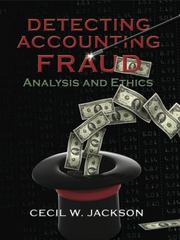Question
Brenda, the chief executive of Kids Dream Big, was at the end of her rope. Just this morning, her HR manager had received an e-mail
Brenda, the chief executive of Kids Dream Big, was at the end of her rope. Just this morning, her HR manager had received an e-mail from Ned, a longtime board member, containing probing questions regarding the recent firing of the organization's marketing coordinator. Brenda planned to call Ned assoon asshe calmed down. This wasn't the first time Ned had gone to a staff member with questions about the organization, which offered programs to help children develop their musical and artistic talents. Ned telephoned, sent e-mails, and dropped into staff offices when he was on-site for board meetings. Once he even cornered the director of development at the grocery store and grilled her about mailing lists! Brenda was always surprised when he contacted staff because she was diligent in following up with him and other board members when they asked questions, whether about program participation rates and student satisfaction scores or even about instructors and program schedules. In the seven years that Brenda had been running Kids Dream Big, she had fostered openness and transparency with the board. But as Ned's behavior became more worrisome, she began providing board members, especially Ned, with more information than requested. Even so, she sensed that Ned was trying to read between the lines or see subterfuge where there was none. When had this behavior started? Was it around a year ago when his favorite music program had been cut? Or eight months ago when he retired from running his small music store? She couldn't remember exactly it seemed like it had been going on forever. Brenda felt she was meeting Ned more than half way in his desire for information, and, frankly, she was getting tired of it. The last three times that her staff had told her of Ned's inquiries, she had called him, answered his questions, and politely, but firmly, asked him to contact her directly in the future. She explained that staff felt uncomfortable responding to his requests, sometimes because a matter was confidential, as with the recent firing, and sometimes because Ned seemed to question instructions staff members had received from Brenda, their boss. With this morning's request, Brenda found herself wondering what Ned was really up to and if she had a bigger problem than just a "nosy" board member. She wanted to be prepared when she called him, but, she wondered, prepared for what? How could she handle Ned when she wasn't sure what was really motivating him? What should Brenda do?
How would you solve the dilemma described in this case? Now that you've read the case, answer the questions below to see how you would react.
1. What is the most important issue in this case?
2. What do you think should be done first to address this issue?
3. Any other steps you'd take on that issue?
4. In addition to the primary issue you listed above, are there others that need attention?
5. What steps do you recommend for addressing those issues?
6. What could have been done differently by the people in the case to avoid the situation entirely?
Step by Step Solution
There are 3 Steps involved in it
Step: 1

Get Instant Access to Expert-Tailored Solutions
See step-by-step solutions with expert insights and AI powered tools for academic success
Step: 2

Step: 3

Ace Your Homework with AI
Get the answers you need in no time with our AI-driven, step-by-step assistance
Get Started


